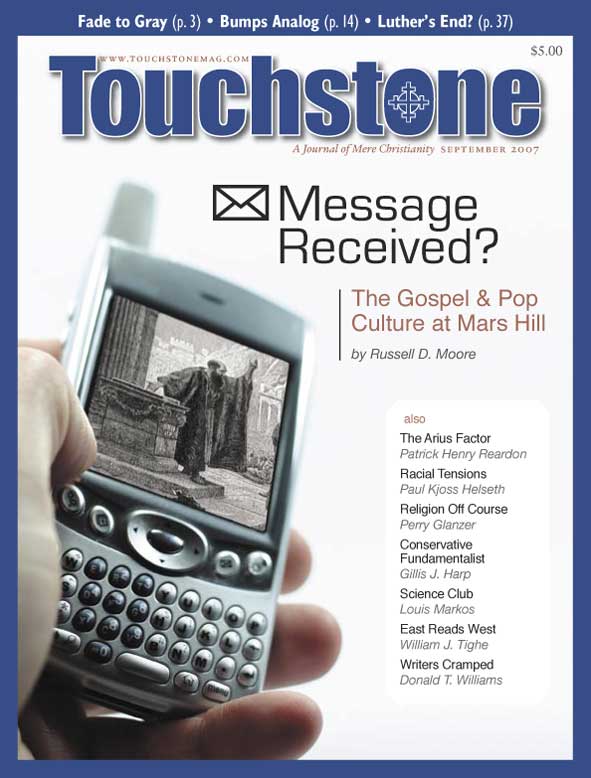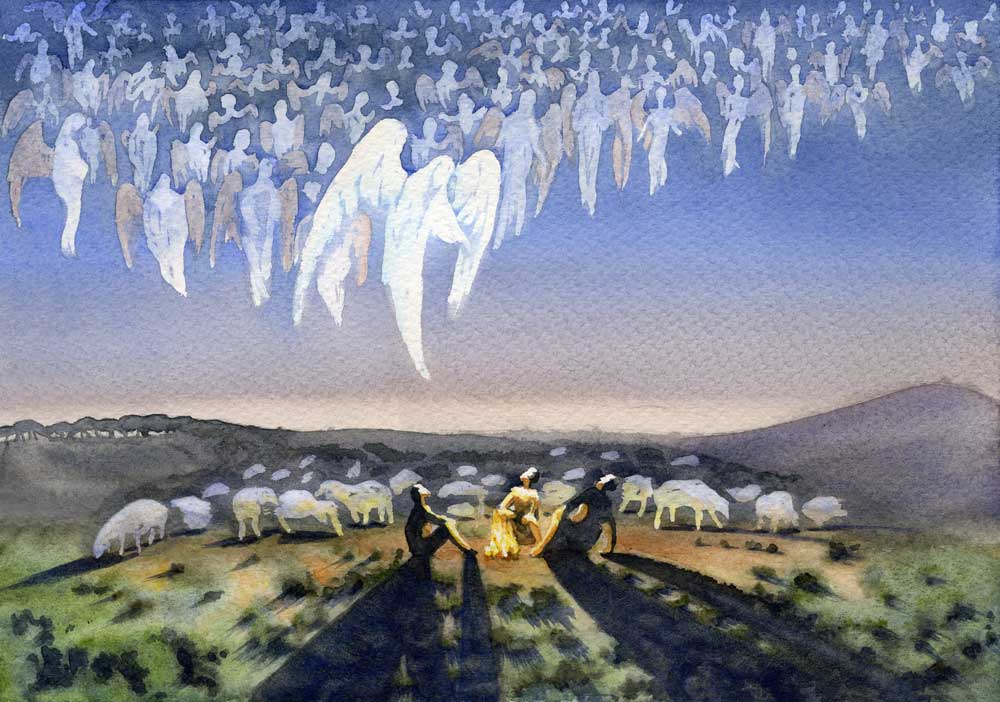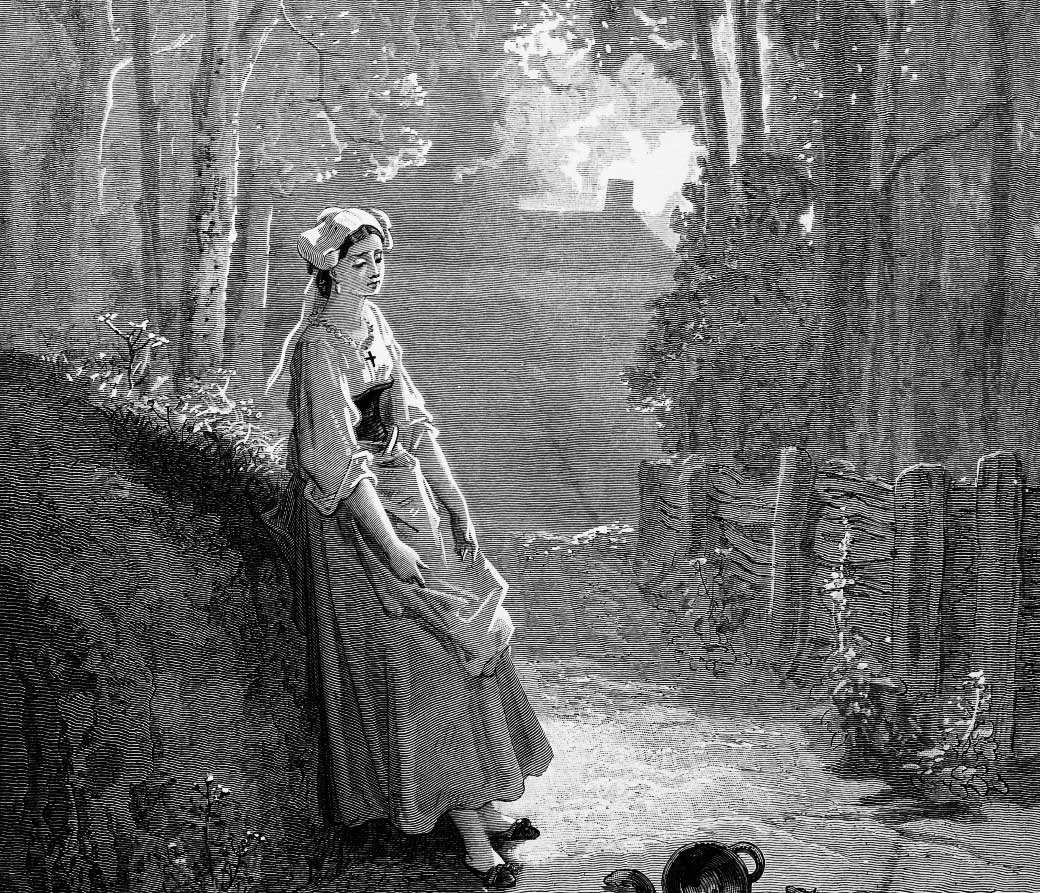Writers Cramped
Donald T. Williams on Three Things Evangelical Authors Can Learn from Flannery O’Connor
My fellow Evangelicals publish reams upon reams of prose. What we have not tended to write is anything recognized as having literary value by the literary world. What makes this failure remarkable is that our Protestant forebears include a number of people who did: Philip Sidney, Edmund Spenser, George Herbert, John Milton, and John Bunyan, to mention a few.
Equally remarkable is the host of near contemporary conservative Christians—sometimes quite evangelical and even evangelistic, though not “Evangelicals”—who were also important writers. G. K. Chesterton, C. S. Lewis, J. R. R. Tolkien, T. S. Eliot, Graham Greene, Aleksander Solzhenitsyn, Walker Percy, and Flannery O’Connor are all recognized as important literary figures even by people who do not share their Christian commitment.
Where is the contemporary American Evangelical who can make such a claim?
No Ranking Names
The modern Christians who are important writers are all from liturgical churches: Catholic, Anglican, Orthodox. The closest thing Evangelicalism has to a name that could rank with these is probably Walter Wangerin, Jr., who is not really a mainstream Evangelical but a Lutheran—again, from a liturgical tradition.
Try to think of a conservative Baptist, a Free or Wesleyan Methodist or a Nazarene, a conservative Presbyterian, a Plymouth Brother, a member of the Evangelical Free Church or the Christian and Missionary Alliance, a Pentecostal, or a member of an independent Bible church who belongs in that company. (Some have mentioned writers who used to be in those churches—but the phrase “used to” in the observation is telling.)
The liturgical churches foster a lot of schlock and kitsch of their own, but they also nurture great writers and great writing. So far, we Evangelicals have not. In fact, we often positively discourage “literary” writing as being of questionable spiritual value.
I define an Evangelical as a person committed to Nicene and Chalcedonian orthodoxy, a high view of the authority of Scripture, the Reformation doctrine of justification by faith alone, and the necessity of personal faith in Christ (and therefore the importance for most people of a personal conversion experience, as long as we do not stereotype it) for salvation.
If committed Evangelicals must give up any of that in order to nurture serious artists and writers, then we are prepared to let art and literature perish from the earth! But I cannot believe that the God who begot the incarnate Logos desires any such thing.
So let us find another way, and ask, “What can we learn from these great Christian writers—and their church traditions—that Evangelicals can apply in their own discipling communities?” Evangelicals could—and should—learn the same lessons from their Protestant forebears, especially from Philip Sidney, whose luminous The Defence of Poesy could be the foundation for a healthier Protestant poetics.
Donald T. Williams is Professor Emeritus of Toccoa Falls College. He stays permanently camped out on the borders between serious scholarship and pastoral ministry, between theology and literature, and between Narnia and Middle-Earth. He is the author of fourteen books, including Answers from Aslan: The Enduring Apologetics of C. S. Lewis (DeWard, 2023). He is a contributing editor of Touchstone.
subscription options
Order
Print/Online Subscription

Get six issues (one year) of Touchstone PLUS full online access including pdf downloads for only $39.95. That's only $3.34 per month!
Order
Online Only
Subscription

Get a one-year full-access subscription to the Touchstone online archives for only $19.95. That's only $1.66 per month!
bulk subscriptions
Order Touchstone subscriptions in bulk and save $10 per sub! Each subscription includes 6 issues of Touchstone plus full online access to touchstonemag.com—including archives, videos, and pdf downloads of recent issues for only $29.95 each! Great for churches or study groups.
Transactions will be processed on a secure server.
more from the online archives
calling all readers
Please Donate
"There are magazines worth reading but few worth saving . . . Touchstone is just such a magazine."
—Alice von Hildebrand
"Here we do not concede one square millimeter of territory to falsehood, folly, contemporary sentimentality, or fashion. We speak the truth, and let God be our judge. . . . Touchstone is the one committedly Christian conservative journal."
—Anthony Esolen, Touchstone senior editor









